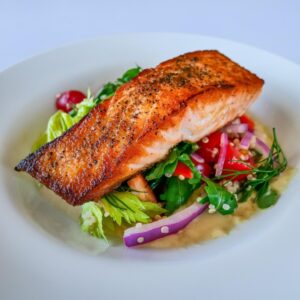In a world spinning faster every day, where meals are often gulped between meetings or scrolled through over screens, the art of eating properly has quietly slipped through our fingers. Yet, at its core, eating is not just about fueling the body — it’s an act of care, a daily ritual, a dialogue with the self. So how do we return to eating not just for survival, but for vitality, clarity, and joy?
It begins with presence.
To eat properly is to slow down. When we sit with our food — truly sit, not multitasking or rushing — we give our body a chance to speak. Hunger and fullness are not on/off switches; they’re whispers that grow louder when we actually listen. Slowing down helps digestion, reduces overeating, and enhances our appreciation of taste, texture, and smell — all of which play a role in how satisfied we feel.
Then comes balance.
Forget strict diets or trendy labels. Proper eating is more about inclusion than exclusion. A balanced plate is a colorful one — leafy greens, bright fruits, hearty whole grains, healthy fats, and quality proteins. Each nutrient has a role, a reason. Carbs give us energy, fats support our brain and hormones, and proteins repair and build. When we eat a bit of everything, we give our body the tools it needs to thrive.
Hydration quietly supports it all. Water helps our organs function, carries nutrients, and even affects our mood. So often, fatigue or fog isn’t a sign of hunger — it’s thirst in disguise. Sipping throughout the day is one of the simplest ways to eat better, even before food touches your plate.
Listening is essential.
Every body is different. Some feel great with three square meals; others thrive with smaller, more frequent bites. Eating properly isn’t about perfection — it’s about tuning into your own rhythms. How does this food make me feel? Am I eating out of hunger, boredom, or stress? Do I feel energized after, or sluggish?
There’s also joy.
Proper eating allows space for pleasure — a square of chocolate, a creamy latte, a shared dessert. When we stop labeling food as “good” or “bad,” we make room for a more peaceful relationship with eating. Enjoyment is not the enemy of health; it’s part of it.
And perhaps most importantly, eating properly is not a destination — it’s a daily act of returning. Returning to awareness. Returning to balance. Returning to the quiet truth that how we eat matters just as much as what we eat.
So tomorrow, when the day starts pulling at your sleeve, take a moment. Breathe. Sit with your food. Taste it. Respect it. Respect yourself. Because eating well is one of the most personal, powerful acts of care you can give — every single day.
 Ok ok
Ok ok



